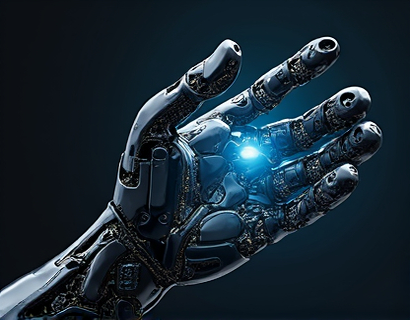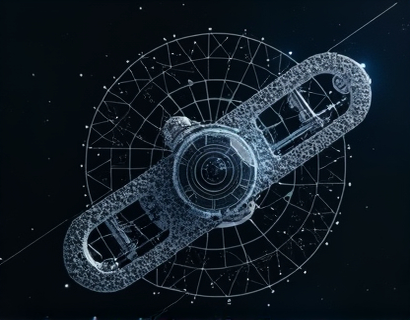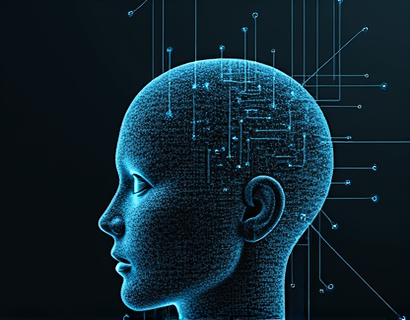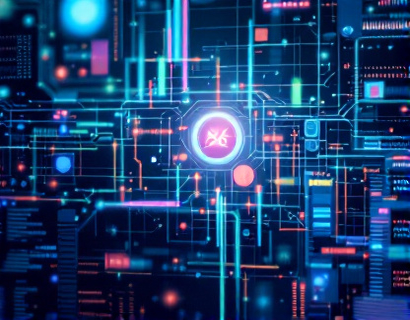Decentralized Organization Transformation: Mastering the Software Stack for Optimal Governance and Collaboration
In the rapidly evolving landscape of decentralized systems, the transformation of traditional organizational structures into decentralized entities represents a significant paradigm shift. This shift is driven by the need for enhanced governance, collaboration, and efficiency. This comprehensive guide delves into the intricacies of leveraging advanced software to build universal decentralized organizations, focusing on the software stack that empowers seamless collaboration, transparency, and efficiency.
Understanding Decentralized Governance
Decentralized governance refers to the management and decision-making processes within an organization that are distributed across multiple nodes or participants, rather than being controlled by a central authority. This approach leverages blockchain technology and decentralized applications (dApps) to create transparent, secure, and resilient systems. The core principles of decentralized governance include decentralization, transparency, immutability, and community involvement.
The Need for Transformation
Traditional centralized organizations face numerous challenges, including bottlenecks in decision-making, lack of transparency, and limited scalability. These issues hinder innovation and adaptability, making it difficult for organizations to thrive in a dynamic environment. Decentralized organizations, on the other hand, offer a more flexible and resilient structure. However, transitioning from a centralized to a decentralized model requires a fundamental transformation in how governance and operations are managed.
Key Components of a Decentralized Software Stack
Building a universal decentralized organization involves integrating a robust software stack that supports decentralized governance and operations. The following components are essential for creating a scalable and efficient decentralized system:
1. Blockchain Platform
The foundation of any decentralized organization is a reliable blockchain platform. This platform provides the decentralized ledger that ensures transparency, security, and immutability of transactions. Popular blockchain platforms include Ethereum, Binance Smart Chain, and Solana, each offering unique features and performance characteristics.
2. Smart Contracts
Smart contracts are self-executing contracts with the terms of the agreement directly written into code. They automate and enforce the execution of agreements without the need for intermediaries. Smart contracts on the chosen blockchain platform can manage various aspects of governance, such as voting mechanisms, token distribution, and access control.
3. Decentralized Identity Management
Decentralized identity management ensures that users have control over their digital identities and can securely authenticate themselves within the organization. Solutions like Self-Sovereign Identity (SSI) and decentralized identifiers (DIDs) enable users to manage their identities without relying on central authorities, enhancing privacy and security.
4. Decentralized Storage
Decentralized storage solutions, such as InterPlanetary File System (IPFS) or Filecoin, provide a secure and distributed way to store and access data. These systems ensure that data is not stored in a single point of failure and can be accessed efficiently by all participants in the network.
5. Decentralized Applications (dApps)
dApps are applications that run on a blockchain or a decentralized network, leveraging the aforementioned components to provide decentralized services. dApps can facilitate various organizational functions, including governance voting, project management, and community engagement.
Enhancing Collaboration
Collaboration is a cornerstone of decentralized organizations, and the software stack plays a crucial role in facilitating effective collaboration among participants. Here are some ways the software stack enhances collaboration:
1. Real-Time Communication
Decentralized communication platforms built on blockchain technology enable real-time, secure, and transparent communication among team members. These platforms can integrate with dApps to facilitate seamless collaboration, ensuring that all participants are on the same page.
2. Collaborative Workspaces
Decentralized workspaces, such as decentralized version control systems and collaborative document editors, allow multiple users to work on projects simultaneously without the need for centralized servers. These tools ensure that all changes are recorded on the blockchain, providing a transparent and tamper-proof history of contributions.
3. Tokenized Incentives
Tokenized incentives can motivate and reward contributors for their efforts and achievements. By using tokens to represent contributions, organizations can create a fair and transparent system for recognizing and compensating participants, fostering a collaborative and engaged community.
Ensuring Transparency
Transparency is a key feature of decentralized organizations, and the software stack is designed to uphold this principle at every level. Here’s how:
1. Immutable Records
The blockchain's immutable nature ensures that all transactions and decisions are recorded permanently and cannot be altered. This transparency builds trust among participants and stakeholders, as they can verify the integrity of the organization's operations.
2. Public Audits
Decentralized organizations can conduct public audits by making their blockchain data accessible to anyone. This openness allows external auditors and the community to review the organization's activities, ensuring accountability and compliance with governance rules.
3. Transparent Voting Mechanisms
Voting mechanisms built on smart contracts provide a transparent and verifiable way to make decisions. Participants can see the voting process in real-time, and the results are immutably recorded on the blockchain, eliminating the possibility of tampering.
Improving Efficiency
Efficiency is crucial for the success of decentralized organizations, and the software stack offers several tools to optimize processes and reduce costs:
1. Automation through Smart Contracts
Smart contracts can automate routine tasks and workflows, reducing the need for manual intervention and human error. This automation streamlines processes, speeds up decision-making, and lowers operational costs.
2. Decentralized Resource Management
Decentralized resource management systems can optimize the allocation and utilization of resources within the organization. By leveraging blockchain-based tracking and smart contracts, organizations can ensure that resources are used efficiently and equitably.
4. Scalability and Flexibility
The software stack for decentralized organizations is designed to be scalable and flexible, allowing the organization to grow and adapt to changing needs. This scalability ensures that the organization can handle increased workloads and integrate new components without significant overhauls.
Case Studies and Real-World Applications
Several organizations have successfully implemented decentralized software stacks to transform their governance and operations. Here are a few notable examples:
1. Decentralized Autonomous Organizations (DAOs)
DAOs are a prime example of decentralized organizations that use blockchain and smart contracts to manage governance and operations. Projects like The DAO and MakerDAO have demonstrated the potential of DAOs in various domains, from finance to community management.
2. Decentralized Governance Platforms
Platforms like Polis and Aragon provide tools for building and managing decentralized governance systems. These platforms enable organizations to create custom governance models, manage token economies, and facilitate community-driven decision-making.
3. Decentralized Marketplaces
Decentralized marketplaces, such as OpenBazaar and Filecoin, leverage blockchain technology to create peer-to-peer trading environments. These marketplaces eliminate intermediaries, reduce costs, and enhance transparency in transactions.
Challenges and Considerations
While the benefits of decentralized organizations are significant, there are also challenges and considerations to keep in mind:
1. Regulatory Uncertainty
The regulatory landscape for decentralized systems is still evolving, and organizations must navigate varying legal frameworks. Ensuring compliance and addressing regulatory concerns is crucial for the success of decentralized initiatives.
2. Technical Complexity
Building and maintaining a decentralized software stack requires specialized technical skills and expertise. Organizations need to invest in training and hiring professionals who can manage and secure these systems effectively.
3. User Adoption
Encouraging user adoption of decentralized tools and platforms can be challenging. Education and community building are essential to foster trust and encourage participation in decentralized systems.
Conclusion
Transforming traditional organizations into decentralized entities is a transformative journey that requires a deep understanding of the software stack and its components. By leveraging blockchain, smart contracts, decentralized identity management, storage, and dApps, organizations can achieve enhanced governance, collaboration, transparency, and efficiency. While challenges exist, the potential benefits of decentralized systems make the effort worthwhile. As the technology matures and more organizations adopt these practices, the future of decentralized governance and operations looks promising.










































